ITSSC 2024

Prof. Mingbo Niu, Chang’an University, China
Mingbo Niu, male, Ph.D., "Chang'an Scholar" Distinguished Professor, well-known expert in the fields of transportation-energy, vehicle-power, electrical-microgrids, professor and doctoral supervisor of the School of Energy and Electrical Engineering of Chang'an University, has been awarded the title of Canadian Registered Professional Engineer (P.Eng.) (a title recognised by the Commonwealth of Nations). He is also the director of the "Transportation-Energy-Information" Multi-Network Integration and Self-concordance Technology Innovation and Intelligence Base in Shaanxi Province, the head of IVR Low Carbon Transportation Laboratory and Micro and Nano Experimental Space, a member of the Internet of Things Committee of the China CIC, and a senior member of the China Highway Society. He was awarded the title of China's National Outstanding International Student and reported in "Shenzhou Scholar". He studied under Prof. Xu Demin, Academician of the Chinese Academy of Engineering (CAE), and worked as a scientific researcher in the State Key Laboratory. In 2005, he studied under Academician Xu Demin, CAE, and worked as a research assistant for the Multi-Robotics Project, and then went to the University of British Columbia for his Ph.D. degree (his Ph.D. work was highly recognised by an external reviewer, Prof. Robert Schober, Canadian Academy of Engineering (CACE), and a recipient of the prestigious Alexander von Humboldt Prize). His PhD work was highly recognised by an external reviewer, the prestigious Alexander von Humboldt Professorship, and Prof. Robert Schober, Dean of the Engineering Faculty of Canada. After his PhD, he joined Queen's University as a post-doctoral researcher in cutting-edge sciences, and was awarded the title of "Registered Professional Engineer" in 2017, and was invited to be the Chief Contributor to the SCI international journal "Wireless In 2019, he was invited to be the Chief Guest Editorial Board Member of the SCI International Journal "Wireless Communications and Mobile Computing" organised by Wiley in collaboration with Hindawi, and in 2021, he was invited to be the Editor-in-Chief of the EU InTech Intelligent Electricity Series.
Speech Title:
Smart Optics and Its Role on Ultra-high Frequency Green Comm
– History, Trends, and Technologies
Abstract:
Moving to smart grids to cyber-physical-social systems, moving from 5G to 6G, and moving from navigation assistant to intelligent driving, our world changes and ubiquitous connections are beyond imagination. The emerging smart optics technologies, that could potentially change people’s life in every aspect, motivate us to merge, expand and utilize the ultra-high bands for a variety of new designs, materials, and technique architectures by bundling integrated circuits, signal processing, energy harvesting, sensing, imaging, tomography, and data transmission. There are several limitations in the existing wireless world to meet the rise of traffic. Fortunately, the ultra-high band could be a promising candidate to combat these limitations. It also covers an underdeveloped ultra-wideband zone between microwave and infrared, therefore it bridges the gap between electronics and optics. In order to build up smart optics band systems that we need, we add new advances of cyber-physical across different research disciplines, smart optics can find its applications due to benefiting from both advantages of electronics and optics. It shapes future wireless world and promote smart city initiatives on exploring brand-new Green-Comm for reconfigurable intelligent surface, nondestructive evaluation, SWIPT, ITS, security, imaging and signal processing

Prof. Chaoyun Song,King’s College London, UK
Dr. Chaoyun Song is currently a Senior Lecturer in the Department of Engineering at King’s College London, UK. His research interests include wireless energy harvesting and power transfer, rectifying antennas (rectennas), flexible and stretchable electronics, metamaterials and meta-surfaces, and low-power sensors.Chaoyun received his BEng, MSc, and PhD degrees in electrical engineering and electronics from the University of Liverpool, UK, in 2012, 2013, and 2017, respectively. Prior to joining King’s in 2023, he was an Assistant Professor for 3 years in the School of Engineering and Physical Sciences at Heriot-Watt University, Edinburgh, Scotland. He has published over 100 papers (including more than 40 IEEE transactions) in peer-reviewed journals and conference proceedings. Chaoyun holds 4 US/EU patents on rectenna technology, and some of them have been utilized by UK start-up companies. Dr. Song is a Senior Member of IEEE. He has served as a regular reviewer for more than 30 international journals, including Nature Communications, and over 15 IEEE transactions and journals. He has also served as session chair and/or TPC member for several conferences, including EuCAP2018, IEEE AP-S Symposium 2021, IEEE VTC2022-fall, and EuCAP2023. Dr. Song has been a guest editor for Wireless Communications and Mobile Computing, IEEE Open Journal on Antennas and Propagation and is an Associate Editor for Frontiers in Communications and Networks.
Speech Title:
Low Power Self-Renewing IoT Wearable Devices and Systems
Abstract:
The Internet of Things (IoT) technology realises the ‘interconnection of everything’ and ‘intelligent sensing’ through wireless communication and smart sensors, of which the intelligent interconnection of human activities and the physical world is one of the key technologies. Wearable smart devices are the core devices that sense human data and establish wireless connections, such as smart watches that measure temperature, humidity and pulse, and smart skins that measure sweat secretion and blood oxygen and glucose. As the number of wearable devices continues to increase, it has become a major challenge to effectively address the battery life of these devices. This involves not only reducing the power consumption for data collection and transmission, but also charging the device through energy harvesting to achieve self-endurance. This report presents several advanced wireless RF system designs for flexible fabrics and skin-fitting flexible wearable devices. These RF systems are designed to optimise wireless transmission performance and reduce power consumption. In addition, low-power, self-endowed IoT wearables based on backscattered communication with RF energy harvesting are explored, and applications of physical sensors in collecting human data and performing IoT data interactions are demonstrated. The report provides an in-depth analysis of IoT wearables and looks at the future of battery-free, zero-pollution wearables.

Prof. Renzhi Yuan, Beijing University of Posts and Telecommunications, China
Dr. Yuan is currently a distinguished research fellow in the School of Information and Communication Engineering and the State Key Laboratory of Networking and Switching Technology of Beijing University of Posts and Telecommunications. He received his Ph.D. degree in electrical engineering from the University of British Columbia, Kelowna, BC, Canada in 2021. His research interests include the space-air-ground integrated communications, wireless optical communications, and quantum communications. He has authored/co-authored more than 30 papers and applied 8 patents in the area of optical communication and optical signal processing. Dr. Yuan was a Guest Editor for Photonics journal and is currently a young editorial board member for the Journal of Nanjing University of Posts and Telecommunications.
Speech Title:
Key Techniques and Challenges of NLoS Integrated Ultraviolet Communication and Positioning for Intelligent Unmanned Vehicles
Abstract:
Ultraviolet (UV) communication has attracted increasing attention in recent 10 years due to its inherent advantages such as low background noise, high local security, and non-line-of-sight (NLOS) ability. NLOS UV communication can be used in both military secure communications and civil communications among intelligent unmanned vehicles. Though the UV communication can achieve NLOS links thanks to the strong scattering effect of UV signals passing through the atmosphere, the NLOS communication link still suffers from interruption issue when there is no single-scattering link between the transmitter and the receiver. To tackle this interruption issue, the NLOS UV positioning method can be employed to help the UV transceivers maintain the single-scattering link during the communication period, especially in mobile scenarios. Currently, the UV communication and UV positioning are separately studied. In this presentation, we introduce the idea of integrated ultraviolet communication and positioning (IUCaP). We summarize the key techniques and challenges of IUCaP, including the UV positioning, channel modeling, compacity analysis, full-duplex technique, weak signal detection, and experimental studies.
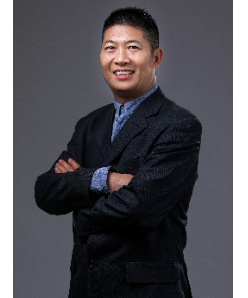
Prof. Xiaoqiang Zhang, Southwest Jiaotong University, China
Doctoral Supervisor, Professor, Postdoctoral Fellow of Georgia Tech; Visiting Scholar of George Mason University, U.S.A.; Judging Expert of National Logistics Competition; Judging Expert of National College Students' Logistics Competition; Reviewing Expert of a number of international and domestic famous journals; Director of Sichuan Science and Technology Youth Federation. He is also the director of Sichuan Science and Technology Youth Federation. He is also a special expert of Sichuan Logistics Association and Luzhou Municipal Government.
He graduated from the School of Information Science and Technology of Southwest Jiaotong University in July 2006 with a doctorate degree in engineering, and stayed in the university to teach in the same year, and is now a doctoral supervisor and professor in the School of Transportation and Logistics of Southwest Jiaotong University.
Professor Zhang Xiaoqiang has long been committed to teaching and researching on logistics intelligence and railway operation management, and has a high reputation in the international and domestic arena. He has supervised more than 100 doctoral and master's students. In recent years, he has published more than 100 academic papers in TRANSPORTATION PART A, TRANSPORTATION PART D and other high-level journals. The number of citations in Google Scholar reaches more than 1,000 times, and 15 papers are selected as Google High Citation Index papers.
He has presided over the projects of National Social Science Foundation, Science and Technology Development Project of Railway Corporation and Science and Technology Development Project of Sichuan Province.
Presided over the Provincial Fine Course of Modern Logistics and published the national textbook "Modern Logistics".
Speech Title: Research on optimization of high-speed railway passenger train operation plan and dynamic pricing strategy based on multi-source data
Abstract:
High-speed railways have become the main battlefield for China to become a transportation power. The construction and operation costs of high-speed railways are high, and most lines are deficit. The relatively fixed price strategy adopted by high-speed railways has led to the imbalance of high-speed railway passenger flow distribution in time and space (holidays, weekdays and weekends, peak and flat peaks, between various ODs and regions). Pricing strategy is the core element to increase transportation revenue. Ticket prices affect high-speed rail passenger demand and its temporal and spatial distribution, which is crucial to improving railway profitability. This research studies the passenger flow selection behavior mechanism of high-speed rail passenger channels, the relationship between high-speed rail passenger fares and demand, and time-sharing differentiated pricing strategies, and studies a set of high-speed rail passenger intelligent operation decision-making theoretical system for pricing and train operation plans.
ITSSC 2023
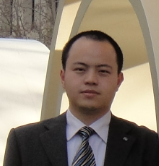
Prof. Hui Liu,Central South University,China
LiuHui, born in 1983, male, Professor, doctoral supervisor, and vice dean of Faculty of Traffic & Transportation Engineering, Central South University. He is a World 2% Top Scientist and Elsevier China Highly Cited Scholar. He is awarded the top national young talents of China. He obtained double PhD degrees from Central South University in China and University of Rostock in Germany and Germany professorshipcertification. He leaded and completed the excellent youth fund of Ministry of Education and Research of Germany. He received one second prize of Natural Science Award of the Ministry of education and one national science and Technology Progress Award (innovation team). He authorized 3 international patents and authorized 89 national invention patents. He has been leading 1 national key R&D project and 3 national natural science Foundation of China. He published 7 English Monographs from Springer and Elsevier Press, 1 Chinese monograph of Science Press and 18 ESI Hot/Highly Cited papers as the first author.
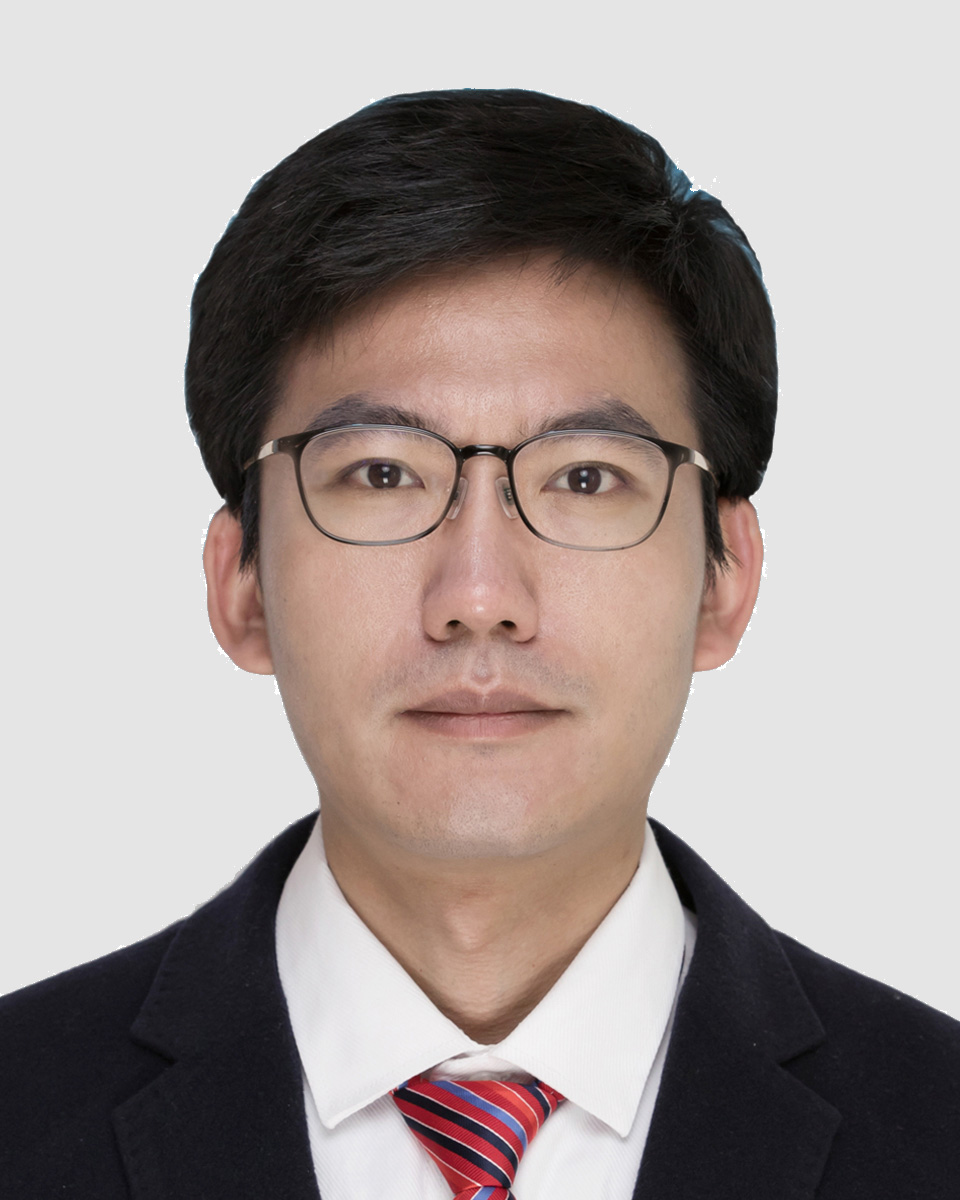
Prof. Tao Wang,Guilin University Of Electronic Technology,China
Professor Wang, whose main research directions are urban traffic planning and management, traffic big data analysis and intelligent transportation, traffic behavior and safety, etc., has published nearly 30 academic papers in these fields, of which 20 are included in SCI. He has presided over 2 projects of the National Natural Science Foundation of China, 3 projects of the Guangxi Natural Science Foundation, and won the Guangxi Science and Technology Progress Award 2 times. As the main participant, he has completed 4 projects of the National Natural Science Foundation of China, 2 projects of the Guangxi Natural Science Foundation, and 2 projects of the Guangxi Science and Technology Development. He has presided over and completed more than 30 engineering application projects such as comprehensive transportation system planning, traffic management safety design, and urban intelligent transportation system design in Guilin, Hezhou and other cities. In 2017, he was selected as an expert in Guangxi's smooth traffic engineering, and in 2018, he was selected as one of the "Thousands of Young and Middle-aged Backbone Teachers in Guangxi Colleges and Universities".
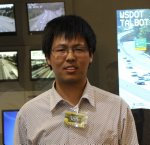
Prof. Jiangfeng Wang,Beijing Jiaotong University,China
Presided over 4 national projects, including 3 NSFC and 1 MOST, and undertook more than 20 projects such as the Ministry of transport, the national development and Reform Commission and the Beijing Natural Science Fund, with a scientific research fund of more than 5.2 million yuan. Won 3 provincial and ministerial awards including the science and technology progress award of the Ministry of education, published more than 60 SCI / EI papers as the first / corresponding author, and authorized 6 invention patents as the first inventor. Edited 5 textbooks and participated in the preparation of national standards and transportation industry standards.
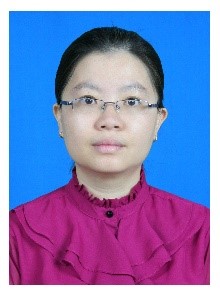
Associate Professor Ng Choy Peng,Universiti Pertahanan Nasional Malaysia
ACADEMIC AND PROFESSIONAL QUALIFICATIONS
Academic Qualifications
Bachelor of Engineering (Civil) Hons., Universiti Putra Malaysia, Malaysia
Master of Science (Highway and Transportation Engineering), Universiti Putra Malaysia, Malaysia
Diploma in Traffic Safety, Aalborg University, Denmark
Doctor of Philosophy (Highway and Transportation Engineering), Universiti Putra Malaysia, Malaysia
ITSSC 2022
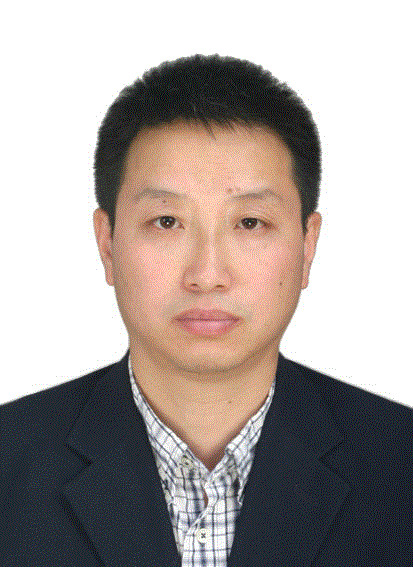
Prof. Ming Zhong,Wuhan University of Technology, China
Title: An Integrated Modeling System for Decision-making Chains over Urban Transportation Planning and Management
Abstract:
Urban transportation planning and management involves decision-making chains from various stakeholders, such as those agencies responsible for socioeconomic development, land-use planning & management, transportation planning, transportation demand and infrastructure management, traffic operation and control and environmental protection agency, related businesses and general public. The level of service of urban transportation system has a profound and pervasive impact on the performance of above stakeholders. Therefore, a decision-making support system based on an integrated modeling technique is desired for examining relevant strategies, policies and measurements in the areas of urban transportation planning and management.
A demo urban integrated land-use transportation modeling system (U-ILUTMS) has been developed based on a technical support project funded by the World Bank, which is to support various decision-makings of above stakeholders. In particular, the system consists of a macroscopic economic model (MEM), a PECAS land-use model (LUM), a macroscopic transport demand model (MTDM), a mesoscopic and microscopic traffic simulation model and several data exchange protocols between these models. In particular, the MEM can be used to forecast the magnitude of each sector (e.g., agriculture vs. industry) over a planning window of 30 -50 years and therefore can provide decision-making support to urban agencies responsible for the socioeconomic development. The output from the MEM will be used as the input for the PECAS land use model within the system, which will allocate the forecasted economic totals by sector into different zones and simulate urban land-use patterns. The LUM will be used by urban planning agencies in supporting the decision-makings related to land use planning and control (e.g., zoning). The PECAS LUM will provide forecasted population/employment data to the macroscopic transport model through a “connected structure” and relevant data exchange protocol. The MTDM will be used to provide decision-making support to various transportation planning and management agencies in the area of infrastructure planning and development. The output from the MTDM will be used to provide subarea OD matrices to a mesoscopic traffic simulation model (MTSM) for large-scale traffic simulations, which, in turn, interacts with microscopic simulation models (MSM) by passing relevant OD data. The MTSM and MSM are found to be very useful in decision-making support of many urban transportation planning and management work, e.g., corridor planning and traffic signal timing.
It should be noted that, within the proposed integrated modeling system, the MSM and MTDM will provide updated network friction and/or land-use patterns tested to MTDM, and MTDM will interact with LUM through newly computed transport cost/time through relevant data exchange protocols. Such a design ensures that the entire modeling system can simulate the behavior of various sectors, their interactions and decision-chains in a holistic and realistic way. It is believed that the proposed integrated modeling system should provide urban planners/engineers/managers enhanced decision-making efficiency and capacity, due to its versatile policy analysis functionalities at multiple spatial scales.
Experience:
Dr. Ming Zhong is a Professor at Intelligent Transportation Systems Research Center (ITSC), Wuhan University of Technology (WHUT) and an adjunct professor at Department of Civil and Environmental Engineering, University of Waterloo. Before he joined WHUT, he was an Associate/Assistant Professor of the Department of Civil Engineering, University of New Brunswick (UNB) from 2006 to 2013. He obtained his Bachelor and Masters degree of Transportation Management Engineering from Tongji University in 1995 and Beijing Jiaotong University in 1998 respectively, and his Ph.D. degree in transportation engineering at the University of Regina, Canada in 2004. Before he moved to UNB in 2006, he was a Research Associate and a Natural Science and Engineering Research Council (NSERC) Postdoctoral Fellow at the Department of Civil Engineering, University of Calgary during 2004 - 2005.
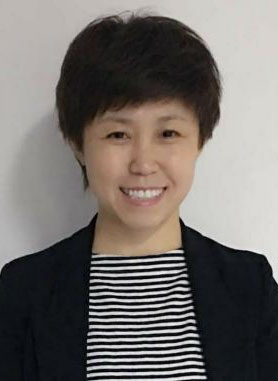
Prof.Xiaohua Zhao,Beijing University Of Technology, China
Title: Research on Design and Evaluation of Human-machine Interaction System of Intelligent Connected Vehicles
Abstract: The evaluation of the public acceptance and product efficiency of the intelligent connected vehicles human-machine interaction system, and the quantification of the comprehensive impact of human-machine interaction system on driving performance are the prerequisites for exerting the potential safety benefits of human-machine interaction system and promoting the safety application of intelligent connected vehicles. To promote the application of human-machine interaction system in intelligent connected vehicle and improve its evaluation system of product efficiency, this study constructs a HUD acceptance model based on TAM theory, analyzes and quantifies the key factors that affect driver's acceptance. This study can provide strategic guidance for HUD design and development. Secondly, the comprehensive evaluation method of driver's visual performance and behavioral performance is proposed based on the driver's cognitive process, including driver's visual information processing mode, visual attention link map and driver's conflict avoidance ability. Finally, the influence of human-machine interaction system on driving performance is quantified by combining external environmental factors and driver's individual factors. The above research conclusions can provide theoretical reference and technical support for the design and promotion, utility evaluation and safety application of intelligent connected vehicles human-machine interaction system.
Experience:
Xiaohua Zhao, doctor of Engineering, is the professor of College of Metropolitan Transportation in Beijing University of Technology. Prof. Zhao is also the member of the Vehicle User Characteristics Committee of Transportation Research Board (TRB), the member of traffic control facilities committee and the chairman of technical committee on traffic safety management of World Transport Convention(WTC), the member of editorial board of China Journal of Highway and Transport, the member of editorial board of Journal of Transport Information and Safety, the member of young scientists and engineers of China Communications and Transportation Association, the sixth director of China Road Transport Association, the member of Expert Committee of reflective materials branch of China Transportation Enterprise Management Association, the member of council of traffic engineering and information branch of China Highway Society, the member of supervisor and the member of technical committee of traffic information and control of Beijing Traffic Engineering Society.
Prof. Zhao has been committed to research on driving behaviors, traffic safety, as well as traffic information and control technology. At present, Prof. Zhao is the author or co-author of 210 academic papers in tenure and the first author of 162 academic papers. Among all published papers, 71 papers were indexed by SCI/SSCI and 65 papers were indexed by EI. Prof. Zhao was editor-in-chief of 3 monographs,1 textbook and 1 translation of MUTCD, and participated in editing 4 monographs. Prof. Zhao won the titles of famous teachers in Colleges and universities in Beijing, scientific and technological talents of China highway construction industry association, outstanding talents of Beijing Organization Department and backbone of Beijing middle-young teachers, etc.
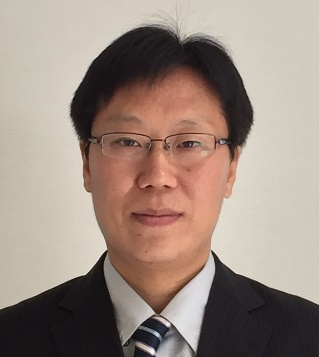
Prof. Celimuge Wu,The University of Electro-Communications,Japan
Title: Toward Efficient Federated Learning for Internet of Vehicles
Abstract: In order to support advanced Internet-of-Vehicles (IoV) applications, such as collaborative autonomous driving and intelligent transport systems, information exchanges among different vehicles are required to find efficient solutions for catering to different application requirements in complex and dynamic vehicular environments. Federated learning (FL), a well-known distributed learning technology, has been attracting great interest in recent years as it performs knowledge exchange among different network entities without a violation of user privacy. This talk will focus on client selection and communication technologies for supporting FL in vehicular environments in order to facilitate emerging IoV applications.
Experience:
Celimuge Wu received his PhD degree from the University of Electro-Communications, Tokyo, Japan, in 2010. He is a professor at the University of Electro-Communications. His research interests include Vehicular Networks, Internet-of-Things, Edge Computing, and Application of Machine Learning in Wireless Networking and Computing. He serves as an associate editor of IEEE Transactions on Network Science and Engineering, IEEE Transactions on Green Communications and Networking, and IEEE Open Journal of the Computer Society. He also has been a guest editor of IEEE Transaction on Intelligent Transportation Systems, IEEE Transactions on Emerging Topics in Computational Intelligence, IEEE Computational Intelligence Magazine etc. He is a recipient of the 2021 IEEE Communications Society Outstanding Paper Award, 2021 IEEE Internet of Things Journal Best Paper Award, IEEE Computer Society 2020 Best Paper Award, and IEEE Computer Society 2019 Best Paper Award Runner-Up. He is/has been a symposium Co-Chair IEEE ICC 2023, a TPC Co-Chair of IEEE International Smart Cities Conference 2021, a TPC Co-chair of the 2021 IEEE Autonomous Driving AI Test Challenge, a General Chair (Lead) of ICT-DM 2021, a TPC Co-chair of Wireless Days 2021, a Track Chair (Lead) of IEEE VTC-Spring 2020, a Track Chair (Lead) of ICCCN 2019, and a Track Chair of IEEE PIMRC 2016. He is the chair of IEEE TCBD Special Interest Group on Big Data with Computational Intelligence, and IEEE TCGCC Special Interest Group on Green Internet of Vehicles. He is a senior member of IEEE.

Prof. Hui Liu,Central South University,China
Title: Smart City Big Data Prediction Technology and Its Transportation, Medical and Power Grid Applications
Abstract: Artificial intelligence and big data have brought new opportunities and challenges to the development of the smart cities. Based on some interesting and important studying results from the presenter and his research team, this report will provide the latest research progress, key technologies and important breakthroughs of smart cities from three specific perspectives: smart transportation, smart medical care, and smart grid.
Experience:
Liu Hui, born in 1983, male, Professor, doctoral supervisor, and vice dean of Faculty of Traffic & Transportation Engineering, Central South University. He is a World 2% Top Scientist and Elsevier China Highly Cited Scholar. He is awarded the top national young talents of China. He obtained double PhD degrees from Central South University in China and University of Rostock in Germany and Germany professorship certification. He leaded and completed the excellent youth fund of Ministry of Education and Research of Germany. He received one second prize of Natural Science Award of the Ministry of education and one national science and Technology Progress Award (innovation team). He authorized 3 international patents and authorized 89 national invention patents. He has been leading 1 national key R&D project and 3 national natural science Foundation of China. He published 7 English Monographs from Springer and Elsevier Press, 1 Chinese monograph of Science Press and 18 ESI Hot/Highly Cited papers as the first author.
Invited Speaker
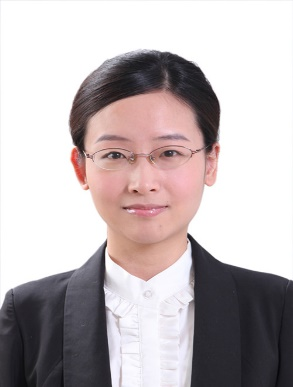
Dr. Shangjing Lin, Beijing University of Posts and Telecommunications, China
Title: Federated learning enabled Internet of Vehicle: coalition formation、resource allocation and incentive mechanism.
Abstract: Modern vehicles are equipped with numerous sensors to collect data. These data can be useful to optimize the performance of the individual vehicles and the transportation network as a whole. However, uploading large amounts of raw data from the vehicles to the IoV edge requires enormous communication bandwidth and introduces significant privacy concerns. Therefore, federated learning technologies are proposed to address the data privacy concerns, communication bandwidth limitations, and data heterogeneity in IoV. However, the mobility of vehicles will lead to the problem of unstable communication connections. To solve the above problems, we propose a framework of joint dynamic coalition formation and resource allocation. Moreover, to incentivize vehicle users (VUs) to cooperatively joint to FL, we further design an iterative double auction mechanism to stimulate VUs with good channel states and sufficient resources to participate in FL.
Experience:
Lin Shangjing, Ph.D., postdoctor, lecturer of Beijing University of Posts and Telecommunications, master supervisor, IEEE member, expert of ISO/IEC JTC1 SC6, senior member of the China Communications Society, and member of the Internet of Things Expert Committee of the China Communications Industry Association. She presided over the National Natural Science Foundation of China Youth Fund "Research on the Evolution and Dynamic of Amorphous Formation Ultra-dense Heterogeneous Networks ", the National Natural Science Foundation of China and the Royal Society of Edinburgh, the " Edge-cloud based self-organization of aerial robotics assisted cellular communications ", participated in the key research and development programs "Development of Small Multifunctional High-Mobility reliable Rescue Robot Equipment for Major Natural Disasters", "Research on mobile ubiquitous business environment architecture and Model of Beijing Winter Olympic Theme" and other national and provincial and ministerial projects. She has published more than 50 academic papers, obtained 18 authorized invention patents, and 3 software copyrights.
ITSSC 2021
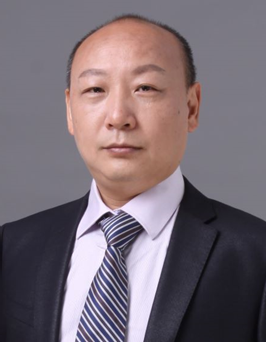
Prof. Guoping Tan, Hohai University, China
Title: Challenges and Practices of C-V2X Technologies
Abstract: Combined with the vision of C-V2X large-scale industrial application from 5GAA and other standardization organizations, this report introduces our relevant technological breakthroughs in this field. Taking the construction of a new generation of National Traffic Control Network (Changzhou) as an example, the challenges and problems faced by C-V2X technology in the practical application of vehicle-road cooperation system will be introduced. Finally, combined with the construction plan of intelligent networked vehicle laboratory of Jiangsu National Intelligent Commercial Vehicle Quality Supervision and Inspection Center, the construction concept and plan of relevant laboratory for experimental verification and product testing of vehicle-road cooperation system in the future are presented.
Experience:
Guoping Tan (S’06-M’09-SM’17) received the PhD degree in computer science from Saarland University, Germany, in 2009. He is currently a full Prof. with the college of computer and information engineering at Hohai University, Nanjing, China. He was a senior engineer in ZTE Corporation China from 2000 to 2003, where he was mainly engaged in R&D of wireless communication protocols for the Base Station of CDMA systems. From Sep.2003 to Aug. 2005, he was a PhD candidate with the National Mobile Communication Research Lab at Southeast University, Nanjing, China. From Sep.2005 to Apr.2009, he was a researcher in Telecommunications Laboratory, Saarland University, Germany under DAAD scholarship. He has served as a TPC member in IEEE ICC 2015-2021 and IEEE GLOBECOM 2016-2021. His current research interests mainly include wireless distributed machine learning and Internet of Vehicles. He is currently the director of the institute of communication and information systems, Hohai University, Nanjing, China.
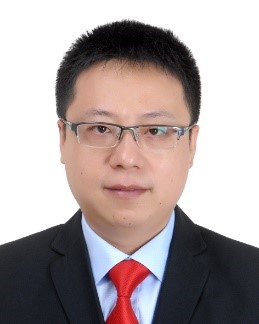
Prof. Wei Shangguan, Beijing Jiaotong University, China
Title: The Technology and Application of CVIS and CAV Supported by Digital Transportation Infrastructure
Abstract: New impacts and problems to the integrated development of CVIS and CAV will be brought by the upgrading of traditional transportation infrastructure and the integration of new intelligent infrastructure construction. This report will focus on the new mixed traffic environment integrating CAV and digital transportation infrastructure, build a ubiquitous and interconnected multi-objective traffic perception network and multi-mode information transmission network, analyze the operation coupling mechanism of heterogeneous traffic agents, study the intelligent collaborative decision-making method of vehicle road groups, and break through the collaborative simulation of traffic agents and the rapid construction of test scenarios Virtual and real information fusion and other key technologies, introduce virtual space, data space and physical space, build a large-scale virtual and real interactive simulation test and verification platform, and realize the integrated and collaborative management and control of smart vehicles / roads in the CVIS. In response to the national major development strategy of the 14th five year plan, there is an urgent need to improve the top-level design, improve the corresponding laws and regulations, accelerate the construction of new infrastructure, concentrate resources to overcome the key technologies of vehicle road coordination, so as to build a test demonstration area, build a typical demonstration city of vehicle road coordination from point to surface, and finally achieve the ideal goal of comprehensive vehicle road coordinated development and application.
Experience:
ShangGuanWei, Professor, Doctoral tutor, Deputy director of Institute of Transportation Automation Science and Technology, School of Electronic and Information Engineering, Beijing Jiaotong University, Member of Intelligent Command and Dispatch Specialized Committee of Chinese Institute of Command and Control, Member of Intelligent Transportation Specialized Committee of China Association for Artificial Intelligence, Member of National Technical Committee on Metering and Testing for Satellite Navigation Applications, Member of Standardization and Inspection Specialized Committee of Zhongguancun Spatial Information Industry Technology Alliance, Chief Expert of Key Laboratory of Intelligent Operation of Civil Aviation Airport Group, Deputy Chief Editor (Chief Editor of Subject Area) of Journal of Beijing Jiaotong University, Member of Department of Interdisciplinary and Chairman of the field of rail transit automatic control of the 2019 World Transport Convention, The visiting scholar at University College London. He has engaged in research on traffic information engineering and control, intelligent transportation, vehicle-road collaborative and autonomous driving for a long time.
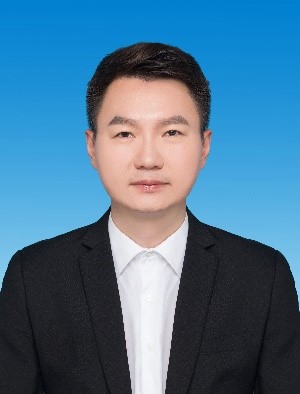
Prof. Chen Chen, Xidian University, China
Title: Computation Resource Allocation Using Mobile-Edge-Platooning-Cloud in the Internet of Vehicles
Abstract: As a core enabling technology of vehicular networks, Vehicular Edge Computing (VEC) relying upon infrastructures can process and analyze the application data taken place in proximity to the vehicles. This report will focus on the background and challenge of vehicular edge computing in practical transportation settings from the data, application, capacity and limitation of current VEC. Then we introduce a new edge cloud paradigm of VEC i.e., mobile edge platooning cloud (MEPC). Besides, we also introduce the contradiction between resource constraints and computing requirements when confronting with the computation offloading in the Internet of Vehicles (IoV). Considering the priority of the Delay-Sensitive Tasks (DSTs), preemptive scheduling is introduced to deal with the hybrid tasks, comprised of DSTs and Delay-Tolerant Tasks (DTTs). Then, we establish a computation offloading problem based on the collaborative EC-MEPC architecture by jointly optimizing the decision-making and resource allocation issue.
Experience:
He is currently a Professor with the Department of telecommunication in Xidian University, and a member of the The State Key Laboratory of Integrated Service Networks in Xidian University. He is also the Director of the Xi'an Key Laboratory of Mobile Edge Computing and Security, and the Director of the intelligent transportation research laboratory in Xidian University. He was a visiting professor at the department of EECS in the University of Tennessee and the department of CS in the University of California. He serves as General Chair, PC Chair, Workshop Chair or TPC Member of a number of conferences. He has authored/co-authored 2 books, over 130 scientific papers in international journals and conference proceedings. He has contributed to the development of 5 copyrighted software systems and invented over 100 patents. He is also a senior member of China Computer Federation (CCF) and China Institute of Communications (CIC).
Invited Speaker

Prof. Hui Liu, Central South University, China
Title: Big Data Prediction Methods and Applications in Smart Cities
Abstract: The keynote talk will present the big data forecasting techniques for the key aspects (e.g., urban rail, environment, building energy, green grid, etc.) of smart cities, and explores three key areas that can be studied using big data prediction in the smart cities, such as grid energy, intelligent train systems and environmental health. Some new time series processing and forecasting strategies are provided. The big data prediction methods and applications proposed in this talk can provide some useful references for the development of intelligent traffic systems and smart cities.
Experience:
Liu Hui, born in 1983, male, Professor, doctoral supervisor, and vice dean of Faculty of Traffic & Transportation Engineering, Central South University. He is a World 2% Top Scientist and Elsevier China Highly Cited Scholar. He is awarded the top national young talents of China. He obtained double PhD degrees from Central South University in China and University of Rostock in Germany and Germany professorship certification. He leaded and completed the excellent youth fund of Ministry of Education and Research of Germany. He received one second prize of Natural Science Award of the Ministry of education and one national science and Technology Progress Award (innovation team). He applied for 12 international patents and authorized 72 national invention patents. He has been leading 1 national key R&D project and 3 national natural science Foundation of China. He published 6 English Monographs from Springer and Elsevier Press, 1 Chinese monograph of Science Press and 18 ESI Hot/Highly Cited papers as the first author.
